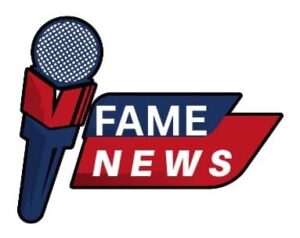
By Abbati Bako,Kent Alumni and The UK’s European University:
In the 30th Economic Summit in Abuja which was organized by the Nigerian Economic Group in collaboration with the Federal Ministry of Budget and National Planning. In his address the Senior Vice President of World Bank Group Mr. Indermit Gill claimed that the Nigerian economy will take positive shape between the “next 10 to 15 years to be reformed”. Should the economic suffering of Nigerians continue until after the next 10 to 15 years? The current measures being taken by the President Ahmed Bola Tinubu’s government can’t give relief to almost 130 million vulnerable poor Nigerians through the next 10 to 15 years?
There is a serious lack of economic growth and development in Nigeria. Stagflation is becoming Nigeria’s cancerous illness which currently led the nation into intensive care units (ICU). Currently, Nigeria is Africa’s largest economy, and is at a crossroads. But before the end of the year 2024 Nigeria’s number one position as the largest economy in Africa (with GDP worth about $511B according to World Bank/IMF) will drop down to third position following South Africa and Egypt.
Nigerians are much concerned about the oil subsidy and the need to either permanently remove it or revert it back based on citizens’ demands. Many political economists have expressed concerns about the success of removing the oil subsidy in Nigeria, citing unsuccessful attempts in other nations like Kenya, Mexico, Venezuela, Brazil and South Africa and other global Southern Hemisphere and former Soviet Bloc in Eastern Europe.
The just change in government in countries like Bangladesh due to economic challenges post oil subsidy removal highlights the complexities associated with this decision. Security challenges in emerging nations of the global Southern Hemisphere contribute to economic difficulties. The impact of security challenges on economic growth is significant, raising questions about strategies needed to address these issues effectively. The leading Consultant for World Bank/IMF and advocate of Washington Consensus on economic reforms in economic emerging markets Professor John Williamson has been silent on the reforms for long.
The United Nations is questioned about its efforts in tackling security challenges, particularly regarding peacekeeping operations. Citizens are seeking answers and initiatives from the United Nations, emphasizing the importance of their involvement in maintaining peace and security worldwide as well as the connection of economic growth and development in economic emerging nations of the world.
Despite its vast natural resources and potential, the country faces severe insecurity and economic aridity, meltdown, and hardship as well as precarity. President Bola Tinubu’s administration has introduced economic reforms, but their effectiveness is uncertain as Nigeria approaches the election year 2027.
This analysis will try to examine the impact of these reforms, World Bank, and IMF interventions on Nigeria’s economic growth, stability, and development as it’s happening in almost all global South. This writing is on the same page as with Dr. Ngozi Okonjo-Iweala the Director General of World Trade Organization (WTO) at the meeting of the Nigerian Bar Association (NBA) some weeks ago.
She emphasized that “Nigeria has not progressed as expected, and it’s time to shift focus from blame games to concrete actions to tackle challenges and advance the country’s interests”. Dr. Ngozi Okonjo-Iweala, WTO Director-General, expressed concern about Nigeria’s development, citing:
“Lack of policy consistency due to frequent changes in administration
2. Need for a social contract to protect essential policies from political changes
3. Politicization of security, contributing to current challenges
4. Urged for a unified approach to governance and protecting the nation’s interest”.
*Nigeria’s economy has struggled with:
1. Low GDP growth
2. High inflation
3. Unemployment
4. About 90% dependence on oil exports
5. Corruption like a rainy season
6. Without agrarian economic planning
7. And lack solutions to security challenges.
*President Tinubu’s Economic Reforms:
1. Diversification initiatives
2. Privatization of state-owned enterprises
3. Trade liberalization
4. Monetary policy adjustments
5. Investment in infrastructure
6. Removal of all subsidies
7. Lack of tackling stagflation in the country.
*World Bank and IMF Interventions
1. Structural Adjustment Programs (SAPs)
2. Economic stabilization loans
3. Policy advice and technical assistance
*Critical Analysis:
While President Tinubu’s reforms aim to address Nigeria’s economic challenges, there are concerns about their implementation and potential consequences. The World Bank and IMF interventions have had mixed results, with some arguing they exacerbate economic instability, precarity and aridity.
*Solutions to the problems:
1. Inclusive economic growth and development strategies based on calendar time frame
2. Human capital development
3. Infrastructure investment
4. Diversification and industrialization
5. Serious anti-corruption measures
6. Social safety nets
7. Encouraging Foreign Direct Investment (FDI) from all nations of the world
8. Regional economic integration; especially within West African Subregion
9. And huge mobilization of agrarian economic development.
*Conclusion:
President Tinubu’s economic reforms and World Bank/IMF interventions must be carefully evaluated to ensure they promote sustainable economic growth, stability, security and serialization of strategic development on railroads infrastructure in Nigeria to hasten economic growth and development. And a balanced approach to addressing all the solutions mentioned above—ASAP.
Dr. Abbati Bako,Political Strategy and Communication Consultant and Treasurer Kano Chamber of Commerce, Nigeria

